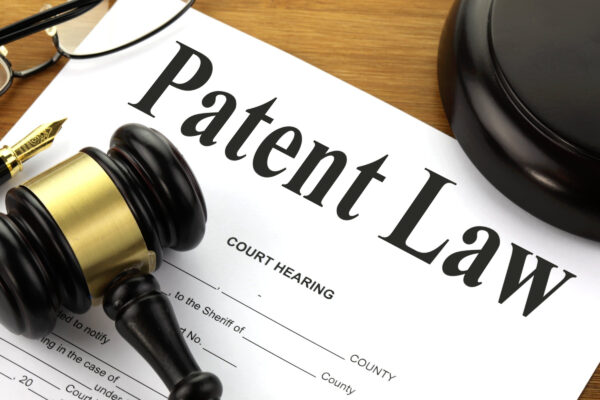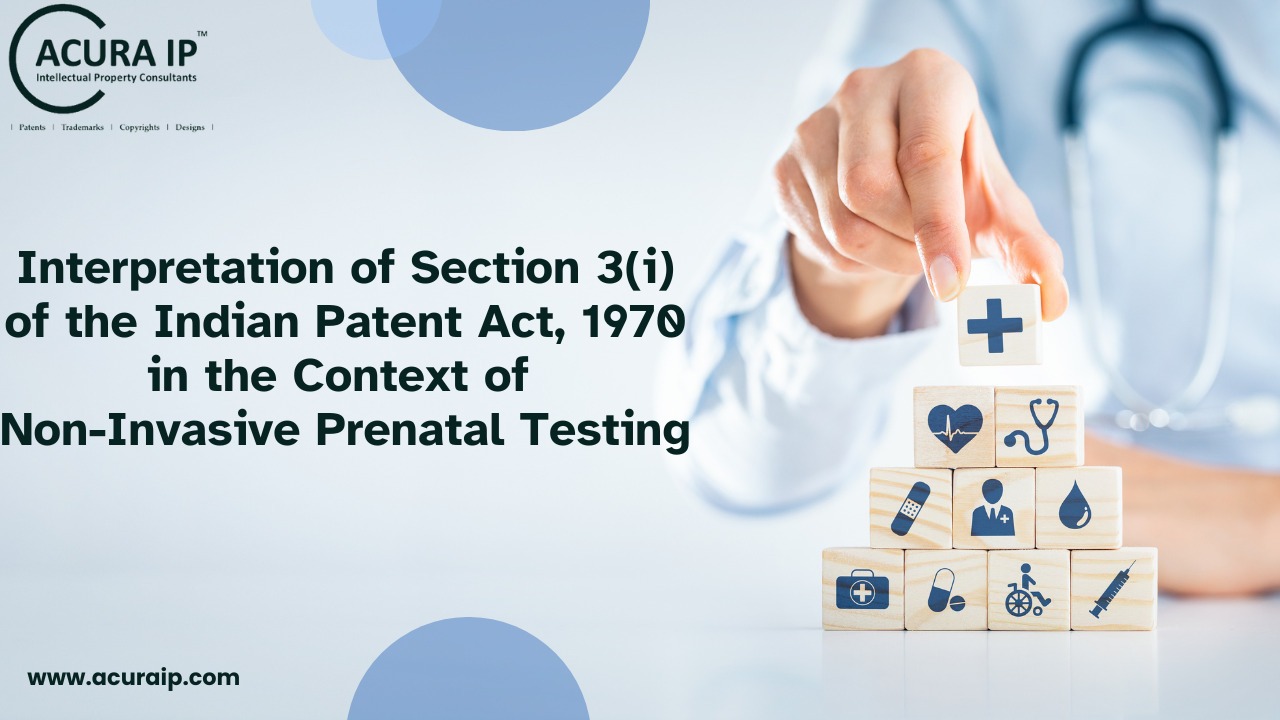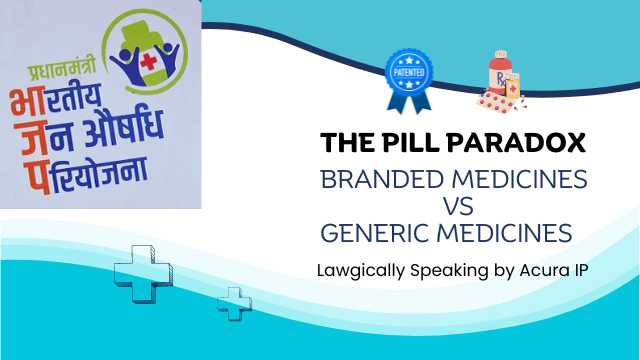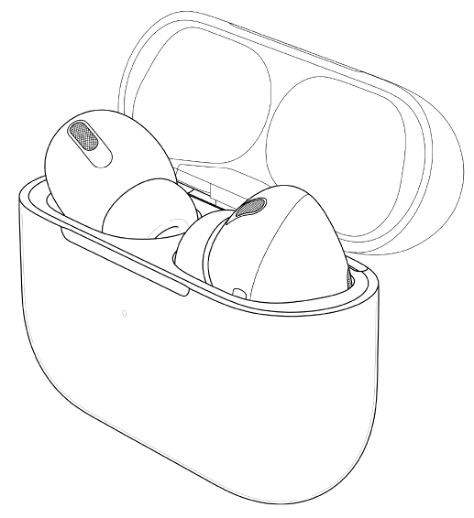
Challenging a Patent Application or a Patent in India
A patent is a statutory right granted to prevent any third party, who does not have the patent owner’s consent from using his patented invention. To know more about patents, please refer to the article “What is a Patent?” While patents are granted after examination of the invention by the respective patent offices, these patent rights are not absolute in most jurisdictions. This means that the patents and even patent applications can be challenged at any stage post-publication of the patent application or during the lifetime of the patent. It is an established position of law in India that there is no presumption of validity of a patent.[i] Also, Section 13(4) of the Patents Act, 1970, (“Act”) provides that the examination and investigations conducted by the Indian Patent Office under Section 12 of the Act shall not be deemed in any way to warrant the validity of any patent. Considering the same, it is apparent that a patent or a patent application is amenable to challenge at any point in time during the validity of the patent.
PATENT OPPOSITION IN INDIA
In India, there are various procedures available to challenge a patent application or a granted patent. The most common procedure entails opposition proceedings initiated before the patent office. As per Section 25 of the Act, there can be a challenge to the validity of a patent application or a granted patent. The challenge to a patent application is known as a pre-grant opposition and a granted patent before the patent office is known as a post-grant opposition.
PRE-GRANT OPPOSITION
The Hon’ble Delhi High Court in the case of M/S UCB Farchim SA vs M/S Cipla Ltd. & Ors., W.P. (C) No. 332 of 2010, observed that a pre-grant opposition is in aid of the examination of a patent application by the Controller. Section 25(1) of the Patents Act, 1970 provides the following:
a. When can a pre-grant opposition be filed?
It can be filed anytime between the time when the application has been published and not granted by the Indian patent office.
b. Who can file a pre-grant opposition?
As per the statute, any person can file a pre-grant opposition. However, with the recent series of judgments, under the grab of the expression “any person”, proxy oppositions have been completely barred. It was held by the erstwhile Intellectual Property Appellate Board (“IPAB”) vide order dated 21.08.2020 passed in OA/2/2016/PT/MUM titled Pfizer Products Inc. v. The Controller of Patent & Designs, that the practice of filing benami/proxy oppositions should be stopped and the Patent Office should not entertain such oppositions. The above order was challenged before the Hon’ble Bombay High Court in the case of Dhaval Diyora v. UOI & Ors. (Writ Petition (L) No. 3718/2020), where the Hon’ble Court upheld the order of the Hon’ble IPAB and reiterated that the Pre-grant Opponent has to show credentials as to how and why they oppose a particular application in the interest of transparency and to avoid abuse of the process of law under the excuse of ‘any person’.
c. What is the mode of filing the pre-grant opposition?
Any person who wishes to file a pre-grant opposition may do so in writing and send the representation to the Controller. As per Rule 55 of the Patent Rules, 2003, representation under Section 25(1) is to be filed in Form 7(A) at the appropriate office with a copy to the patent applicant. The representation under Form 7(A) shall include a statement, evidence if any, and a request for a hearing if so desired.
d.What are the grounds on which a pre-grant opposition can be filed?
Section 25(1) lists the exhaustive grounds in clauses a to k on which only a pre-grant opposition can be filed. These grounds are as follows:
- The invention has been obtained wrongfully.
- The invention has been published prior to the priority date. However, this is subject to Section 29 of the Patents Act, 1970.
- The invention was previously claimed in another Indian patent application, which was published on or after the priority date of the applicant’s claim but whose priority date is earlier than that of the applicant.
- The invention was publicly known or used before the priority date.
- The invention is obvious and does not have an inventive step.
- The subject of any claim of the complete specification is not an invention under the Act.
- The complete specification does not sufficiently or clearly describe the invention or the method by which it is to be performed.
- The applicant failed to disclose information under Section 8 of the Act or provided materially false information.
- The application was not made within 12 months of the convention application.
- The complete specification does not disclose or wrongly mention the source or geographical origin of the biological material used for the invention.
- The invention was anticipated by taking into consideration the knowledge possessed by indigenous communities anywhere in the world.
e. Procedure for the Pre-Grant Opposition
The procedure-related to pre-grant opposition is provided under Rule 55 of the Patent Rules, 2003. A representation by way of pre-grant opposition is considered only when a request for examination of the application must be filed. On consideration of the representation, if the Controller is of the opinion that the application for patent shall be refused or the complete specification requires amendment, he shall give notice to the applicant to that effect. On receiving the notice of the pre-grant opposition, the patent applicant shall, if he so desires, file his statement and evidence, if any, in support of his application within three months from the date of the notice, with a copy to the opponent. On completion of the pleadings, the Controller may grant a hearing to both the opponent and the applicant. On consideration of all the pleadings and hearing submissions, the Controller may either reject the representation or require the complete specification and other documents to be amended to his satisfaction before the patent is granted or refuse the grant of the patent application. The order passed by the Controller shall be a speaking order. Further, the Controller is required to decide on the application and the representation ordinarily within one month from the completion of the above proceedings.
POST-GRANT OPPOSITION
Section 25(2) of the Act deals with the post-grant opposition. It provides the following:
a. When can a post-grant opposition be filed?
A post-grant opposition is to be filed within a year from the date of publication of the grant of a patent.
b. Who can file a post-grant opposition?
Any person interested may give notice of post-grant opposition. As per Section 2(1)(t) of the Act, a person interested includes a person engaged in, or in promoting, research in the same field as that to which the invention relates.
c. What is the mode of filing the post-grant opposition?
As per Rule 55A of the Patent Rules, 2003, the notice of post-grant opposition is to be filed in Form 7 and sent to the Controller in duplicate at the appropriate office.
d. What are the grounds on which a post-grant opposition can be filed?
The exhaustive grounds of the post-grant opposition are provided under Section 25(2) of the Act and are similar to that of the pre-grant opposition under Section 25(1) of the Act.
e. Procedure for the Post-Grant Opposition
The detailed procedure of the post-grant opposition is provided in Rules 55A to 63 of the Patent Rules, 2003. The notice of opposition filed by the opponent shall contain a written statement setting out the nature of the opponent’s interest, the facts upon which he bases his case and relief which he seeks, and evidence, if any, and shall deliver a copy of the notice of opposition along with statement and evidence if any to the patentee. On receipt of notice of opposition by the opponent, the Controller shall constitute an Opposition Board, consisting of three members, and nominate one of the members as the Chairman of the Board. Meanwhile, on receipt of the notice of opposition, the patentee if desirous of contesting the opposition shall file a reply statement setting out fully the grounds upon which the opposition is contested and evidence, if any, in support of his case within a period of two months from the date of receipt of the copy of the written statement and opponent’s evidence. After receiving the reply statement and evidence, if any, if the opponent wishes to file a reply, then the opponent shall within one month of receiving the patentee’s reply statement, file a reply evidence strictly confined to matters in the patentee’s evidence and shall deliver to the patentee a copy of such evidence. Simultaneously, the Opposition Board shall conduct the examination of the notice of opposition along with documents filed by the parties, and submit a report with reasons on each ground taken in the notice of opposition with its joint recommendation within three months from the date on which the documents were forwarded to them. On the completion of the presentation of evidence, if any, and on receiving the recommendation of the Opposition Board or at such other time as the Controller may think fit, he shall fix a date and time for the hearing of the opposition and shall give the parties not less than ten days’ notice of such hearing and may require members of Opposition Board to be present in the hearing. After hearing the party or parties desirous of being heard, or if neither party desires to be heard, then without a hearing, and after considering the Opposition Board’s recommendation, the Controller shall decide the opposition and notify his decision to the parties giving reasons for the same.
WHAT HAPPENS AFTER OPPOSITION IS ALLOWED OR REFUSED
In case a pre-grant opposition is refused, if the opponent is a person interested, he can file a post-grant opposition or a revocation petition. However, in case the person is not “person interested”, then the other remedy available to the person is to file a writ petition under Article 226 of the Constitution before the concerned High Court. Further, in case a post-grant opposition is rejected, then the opponent may prefer a statutory appeal before the concerned High Court.
PATENT REVOCATION IN INDIA
Other than post-grant opposition, during the lifetime of a patent, any person interested may file a revocation petition to challenge the grant of a patent during the lifetime of a patent. The revocation petition may be filed before the respective High Court having jurisdiction on the grounds mentioned in Section 64 of the Act. Moreover, in an infringement proceeding, a defendant can file a counter-claim on the grounds provided under Section 64 of the Act to invalidate a patent.
[i] Bishwanath Prasad v Hindustan Metal Industries ((1979) 2 SCC 511)

Interpretation of Section 3(i) of the Indian Patent Act, 1970 in the Context of Non-Invasive Prenatal Testing
Introduction The advent of Non-Invasive Prenatal Testing (NIPT) has revolutionized…

Branded Medicines vs. Generic Medicines: The Role of Patents
In the pharmaceutical industry, the distinction between branded and generic…

Utility Patents vs Design Patents (Industrial Designs)
While the definition of Patent merely covers…
Categories
Recent Discussions
Interpretation of Section 3(i) of the Indian Patent Act, 1970 in the Context of Non-Invasive Prenatal Testing
Introduction The advent of Non-Invasive Prenatal Testing (NIPT) has revolutionized prenatal diagnostics, enabling expectant parents to assess the genetic health of the fetus…
Recent Discussions
Branded Medicines vs. Generic Medicines: The Role of Patents
In the pharmaceutical industry, the distinction between branded and generic medicines is an essential one. Understanding this distinction is crucial not just for…



